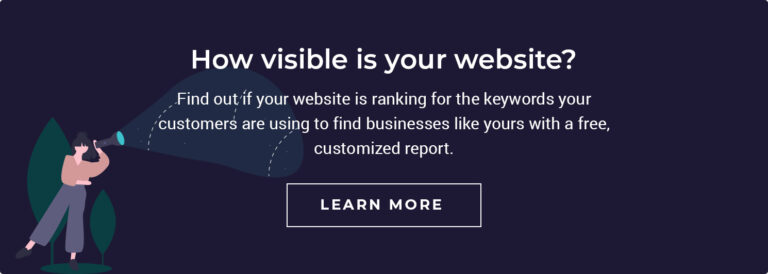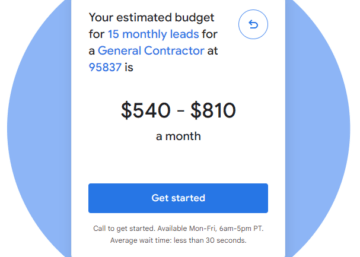Paid Search (Google/Bing Ads) is one of the quickest ways to generate quality leads for your contractor business. Google and Microsoft have spent millions of dollars over the last two decades to improve these tools and make it easy for small businesses to profit on their platform. It’s intuitive and easy to set up – you can skyrocket to the top of Google in less than 1 hour!
While it’s very easy to create a campaign, it’s even easier to waste hundreds of dollars on clicks that aren’t generating leads for your business. Before you start spending money on Google or Bing Ads, you’ll want to ask yourself a few questions:
1. Do I have a website or landing page that I should drive traffic to?
The biggest driving force behind a successful Paid Search campaign is your landing page. Does your content match what they’re searching for? Does it demonstrate why someone should choose you over your competitors? Does it have a clear call to action? The quality of your landing page will influence how often your ads show up, how much you pay for them, and how many people actually contact you. Google and Bing want to showcase websites that provide the best customer experience for every search query. If you’re sending people to an old, poorly designed website, customers are not going to spend much time on your site. If Google and Bing see that this is a consistent trend, you’ll have to pay more for each click and you’ll plummet in the search results.
2. What are my highest margin service offerings?
One of the biggest mistakes contractors make is running Paid Search campaigns for ALL of their service offerings. Small businesses just don’t have the budget to advertise for all their service offerings. Instead, you should focus on one or two service offerings that produce the highest margins for your business. One of our clients, THE Remodel Group, is in the competitive Portland market. By focusing on their two highest-margin service offerings, we’re able to maximize their ad budget and dominate the SERPs for all keywords related to those specific offerings.
3. What locations do I want to target?
Get really specific on the exact zip codes you want to target. Use UnitedStatesZipCodes.org to identify high median home value communities in your service area. The more specific you get on your zip codes, the better your chances at attracting the high-ticket projects you’re after. We used this approach with Springs Home Improvement when starting a new Google Ad campaign. Every advertising dollar matters, so our goal was to focus on the specific zip codes in Colorado Springs that United States Zip Codes and our client identified as high median home value zip codes.
4. Do I have the time to manage and optimize these ads?
Paid Search is not a plug-and-play strategy. It takes time to optimize your account and maximize your ad budget. On the flip side, if you don’t spend time on your account, you can quickly drain your budget bidding on keywords or search queries that aren’t relevant to your business. We’ve talked with many contractors who created a Google Ads campaign, then came back 1 month later and realized that 70% of their budget was used on clicks that didn’t pertain to their business. If you don’t have time to manage and optimize your account, you can always hire a Paid Search professional such as Keokee.
5. Do I understand the fundamentals of Search Ads?
It can be tempting to jump right into a Paid Search campaign. They’re easy to set up, and just as easy to mess up. Do you understand the difference between broad, phrase, and exact match keywords? Do you know how to add extensions to your search ads? Do you know how to target people actually in your target area, as opposed to people “interested” in your target area? Do you know how to set up lead tracking? There’s a handful of default settings that will absolutely balloon your budget if you don’t understand the fundamentals of Google Ads. Make sure you do some research or talk to a Paid Search professional before setting up your first campaign.
Paid Search is a great way to quickly generate leads for your business, and it can also be useful if you’re just starting to build up your SEO. Taking the time to answer these five questions will put you a step ahead of the competition and make sure you’re spending your advertising dollars as efficiently as possible.




